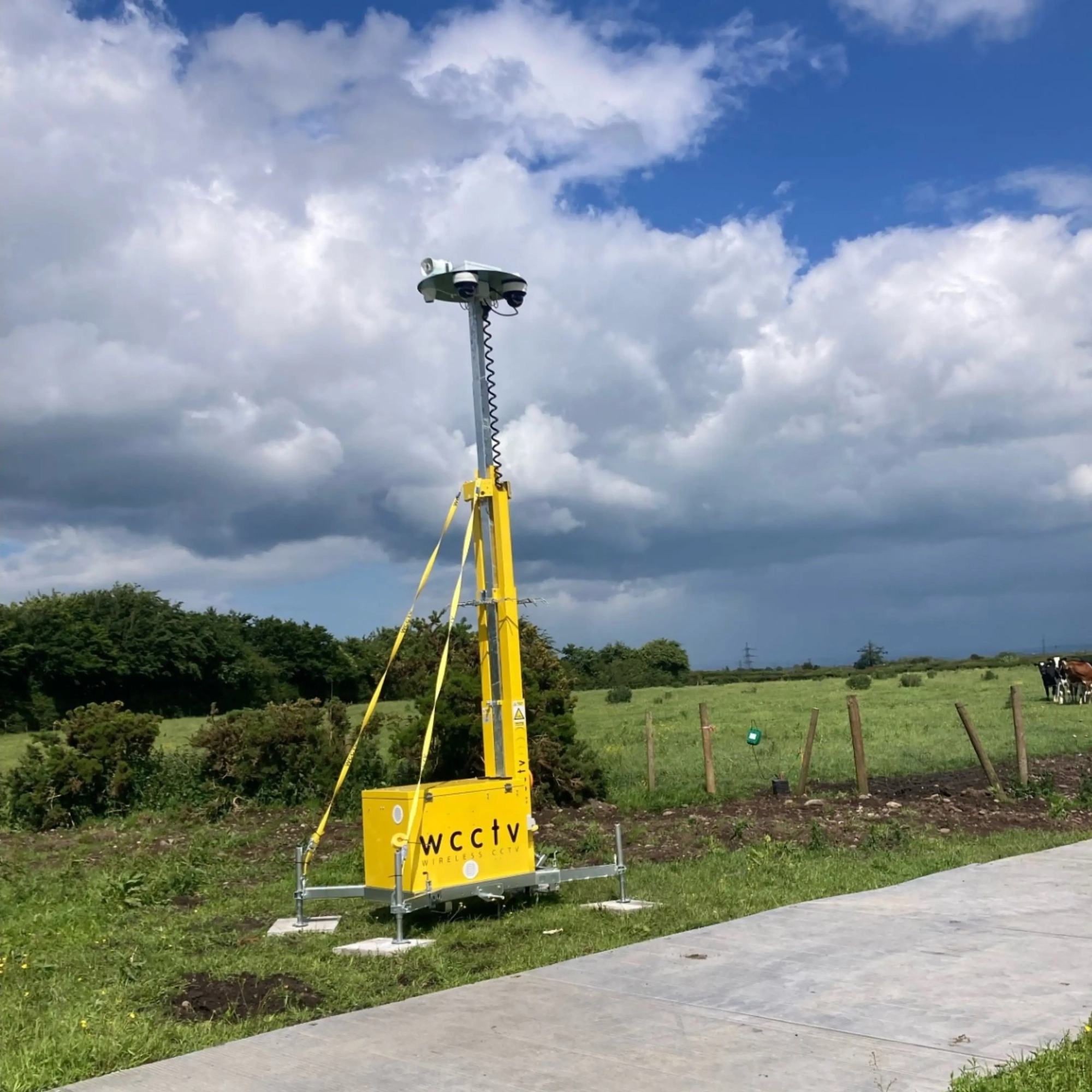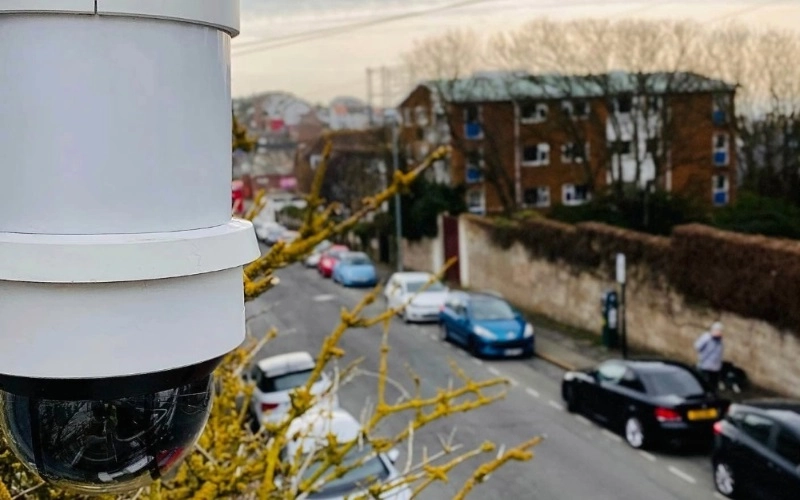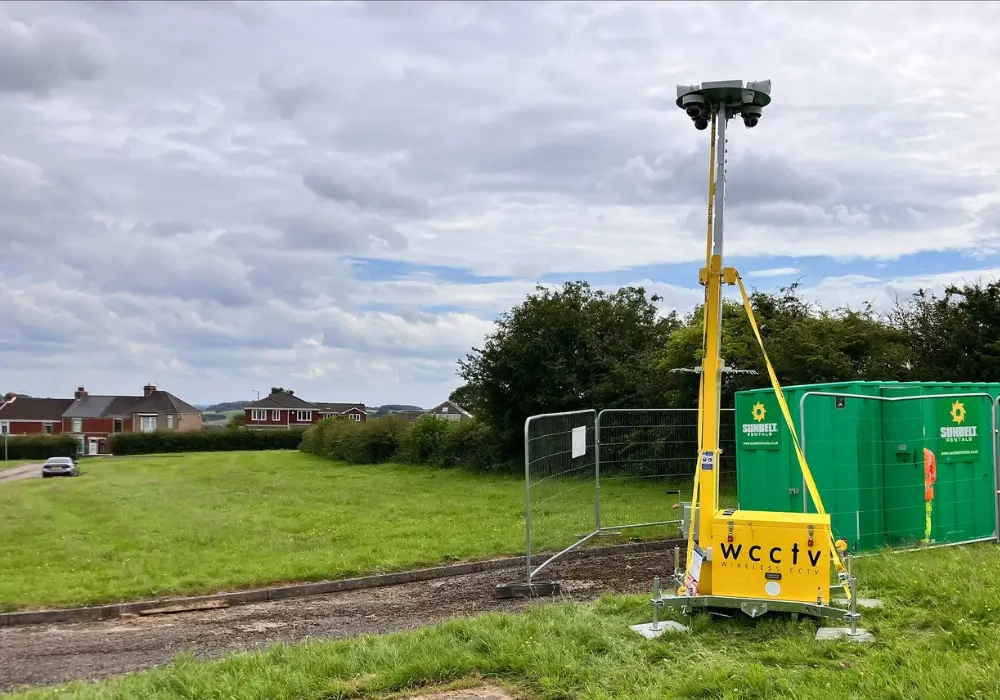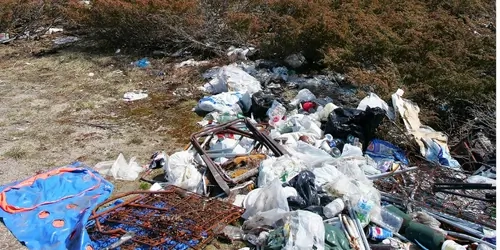In the last five years, the number of fly-tipping reports in England alone have increased by over 20% and it has become one of the biggest problems for many businesses and organisations.
From rail networks to Local Authorities and Councils, fly-tipping plagues many industries with large clean-up costs and public safety risks, to name just a few of the side effects.
But with figures indicating that fly-tipping is only worsening as an issue, establishing a clear fly-tipping prevention plan is key to tackling the ever growing problem faced by many.
Find out about effective prevention strategies in our ultimate fly-tipping prevention guide below.
Why Has Fly-Tipping Risen Over Recent Years?
As noted, over the last five years, England has faced an increase in the number of fly-tipping incidents reported.
Compared to the year 2018/19 where 957,000 fly-tipping incidents were reported, recent figures showed there were 1.15 million incidents between 2023/24, reaching record highs.
Unfortunately, throughout this time incidents figures have increased every single year, showing no signs of slowing down.
The COVID-19 pandemic caused a dramatic rise in fly-tipping cases as waste services and household recycling centres were temporarily disrupted to prioritise public safety at that time.
This, however, saw a spike in cases as individuals and businesses took matters into their own hands to remove household and bulky waste whilst waste removal solutions were placed on pause.
Although, in this instance, many Councils were able to react quickly by creating a safe process to remove waste during this time or alternative methods that minimised the risk of fly-tipping.
Over time, further positive steps with enforcement action, campaigns and introduction of funding support has allowed many industries to tackle the issue of fly-tipping. Most importantly, Public Sector organisations who are held responsible for this in most cases.
However, even with these improvements, other factors such as, bin strikes and tip closures have continued to place a strain on local areas and industries across the country who continue to face the long lasting effects of fly-tipping.
And as many organisations and Local Authorities are making successful steps to reduce and resolve fly-tipping, last year reported a 6% rise in incident numbers, indicating it as a prominent issue.
Fly-Tipping Prevention Methods
The economic state of the UK is ever-changing, leading to stretched budgets, a cost of living crisis and increased competition with funding, making the management of fly-tipping difficult.
However, the only way to overcome an issue of this magnitude is through effective prevention methods aimed to stop fly-tipping before it even takes place. This helps minimise cleanup costs faced by Local Authorities, businesses and most importantly, taxpayers.
We explore the key fly-tipping prevention methods your business or organisation can implement to minimise fly-tipping figures and its consequences:
Increased Surveillance and Monitoring
The transition to mobile CCTV has enhanced fly-tipping prevention for many businesses and organisations.
No more static security that can only record events, systems now proactively monitor and record live footage, deploy audio deterrents and stop crime in its tracks.
Fly-tipping tends to collect in various hotspots and increasing the surveillance and monitoring within these locations can help to physically deter crime whilst gathering evidence to support in any legal proceedings.
Additionally, with mobile CCTV systems, they tend to offer rapid deployment and portability which allows you to move from one location to the next.
This flexibility is beneficial for Local Authorities and the Police who have large areas to cover and stretched resources to manage this.
Public Engagement Campaigns and Education
Fly-tipping commonly involves an individual or household discarding waste illegally, with many being unaware or choosing to ignore the laws in place.
Public engagement campaigns and education can be utilised to combat this, sharing key information on fly-tipping, its effect, the legal consequences and how to report such crime.
Keep Britain Tidy is already incorporated into various Councils and organisations across the UK, encouraging those involved to reduce littering and promote environmental responsibility.
This ongoing initiative aims to inspire individuals and businesses to keep their surroundings clean and implement sustainable practices through further campaigns and educational programmes.
Other schemes such as community watch groups bring residents together to monitor and report incidents of fly-tipping, helping provide insight into hotspot areas and minimising its impact.
Depending on your organisation type, implementing awareness campaigns and educational programmes can be an effective fly-tipping prevention tool whilst also boosting reporting rates.
Enforcement Action
For any individuals or businesses looking to fly-tip, if there is minimal enforcement action seen to be put in place, there’s a higher likelihood for incidents to occur.
Criminals will be provided with a sense of security as there is an assumed lack of neglect being shown to prevent fly-tipping, and therefore that area or hotspot will appear as an easier target.
Ensuring enforcement action in incidents of fly-tipping will deter any potential offenders, showing them that legal repercussions are likely to occur if found to engage in the crime.
Local Authorities are responsible for this, so for any businesses or organisations faced with fly-tipping, it’s important to build a relationship with them and the Police to ensure this takes place.
The type of enforcement actions will vary depending on the fly-tipping, however, offenders could be faced with the following:
- Fixed Penalty Notices (FPNs) - On-the-spot fines for minor fly-tipping offences
- Criminal Prosecutions - Varied forms of legal action can be taken against offenders found to be fly-tipping on a large-scale
- Vehicle Seizures - The power to impound a vehicle involved in fly-tipping
Data-Led Decision-Making
Prevention is only as effective as you allow it to be and in order to provide this, you need to invest time and money into data research and reporting technology to help effectively tackle fly-tipping.
For Local Authorities or businesses with large land space, identifying fly-tipping hotspots will help implement targeted prevention tools at those locations.
This can be gained through an employee or external body compiling reports and mapping out where fly-tipping occurs the most.
Other cost-free solutions include engaging in a multi-agency approach where you seek additional support from other organisations and businesses to gain guidance or tools, and also gain external help.
Some of the best data-led decision-making is gained through reporting.
Investing in a platform that can provide insights into fly-tipping incidents and any relevant information associated with this helps you cater the prevention provided to these issues.
You may be able to find security solutions like ourselves that offer software within their package that provides you with detailed reporting of any incidents.
Improved Waste Disposal Options
Over recent years, many areas' circumstances have changed due to stretched budgets and additional responsibilities which have led to tip closures, reduced hours and a rise in waste removal costs.
However, this decision has impacted incident numbers and where possible, waste disposal options should remain accessible or improved to discourage individuals and businesses from engaging in illegal activities.
Offering free, subsidised or low-cost bulky waste removal will help minimise the risk of large-scale fly-tipping involving white goods and more.
Other steps Public Sector organisations can take is to increase or improve Household Recycling Centres (HWRCs) to create more accessibility, and for rural location, offering mobile waste disposal services.
Although Local Authorities are the body held responsible for fly-tipping, businesses can also take steps to minimise their production of waste and remove the strain placed on waste disposal services.
Physical Barriers and Better Site Management
Improving your site management as a business or in vulnerable locations can help prevent fly-tipping by physically deterring any potential fly-tippers from doing so.
Where appropriate, placing physical barriers at these locations like installing gates, fencing and bollards may be effective depending on the environment.
Also, utilising landscaping to create physical barriers like planting trees, creating ditches and adding hedges can help restrict access to carry out fly-tipping.
Technology-led, mobile CCTV systems can even create invisible barriers that use lasers to form a security boundary around the specified location that triggers if broken.

What Fly-Tipping Prevention Methods Work Best?
Generally, the best fly-tipping prevention method(s) will depend on the location and other contributing factors, however, a blended approach is often recommended in all instances of security.
But, with stretched budgets and high urgency to reduce the impacts of fly-tipping, particularly the cleanup costs, most have been turning to mobile CCTV as their main form of prevention.
Mobile CCTV offers the following benefits for tackling fly-tipping:
- Clear, time stamped video evidence to support in criminal proceedings
- A visible deterrent to criminals that the location is being monitored
- Enables real-time observations and responses to prevent and intercept incidents
- Easy-to-install, flexible security that can move from one hotspot to the next
- Collects data and produces reports that establish patterns and support data-led decisions
- Cost efficient coverage that can be catered to your security budget and helps reduce cleanup fees
- Provides environmental protection by protecting against fly-tipping
Fly-tipping doesn’t stay static, the crime moves and once one location becomes known, criminals can easily move to a new one.
Any surveillance needs to keep up with this and mobile CCTV is the most effective way in providing this and offering the fly-tipping prevention your business or area requires.
Particularly for Public Sector organisations like Local Authorities, Housing Associations and Environmental Agencies where budgets are tighter, mobile CCTV provides cost-effective protection that other fly-tipping prevention tools cannot provide alone.
Mobile CCTV systems can vary in design and some manufacturers offer add-ons such as, Automatic Number Plate Recognition (ANPR) integrations and infrared (IR) cameras that allow for even further precision, depending on your requirements
Mobile CCTV Use Cases for Fly-Tipping Prevention
Having over 20-years of experience in Redeployable CCTV and Rapid Deployment CCTV Towers, we’ve supported various organisations and businesses in preventing fly-tipping.
In particular, we have supported 65% of Councils with fly-tipping, an industry who face the greatest impacts from such crime and are responsible for cleaning up after any incidents.
Through this, we’ve established key use cases for mobile CCTV in targeting, preventing and minimising fly-tipping within various settings:
Wiltshire Council - CCTV Towers
As part of their litter clean-up campaign (Don’t Mess with Wiltshire), Wiltshire Council were looking to increase the surveillance of hot spot locations where fly-tipping and illegal waste removal were taking place.
To target these areas, they invested in three of our CCTV Towers which were installed across three laybys labelled as littering hotspots to help prevent, catch and change the future behaviours of offenders.
As a result of their deployment, Wiltshire Council were shortlisted for the Enforcement Excellence Award at the national Keep Britain Tidy Awards after being highly commended for its work to tackle environmental crime.
Cllr Nick Holder, Cabinet Member for Highways and Street Scene, said: “The number of fly-tips in Wiltshire has been on a downward trend over the course of last year. We've also seen a 31% increase in fly-tipping prosecutions year on year. We are taking all the legal options available to us wherever we find fly-tipping, giving a clear warning that illegal waste disposal is not tolerated, and offenders will face serious consequences.
Standing up to 6 metres tall and bright yellow in colour, our Towers provide a criminal deterrent factor that also utilises high-quality video backed by remote monitoring services, that helps intercept and capture offenders.
Durham County Council - Redeployable CCTV
Durham County Council were facing a large number of fly-tipping incidents across four former colliery streets and their aim was to implement security that would help monitor and deter crime from taking place at these locations.
To do this, they invested in our Redeployable CCTV Cameras to strategically target the four former collier streets that were found to be fly-tipping hotspots.
Following the implementation of our cameras alongside new signage, Durham County Council noted there was a 64.8% reduction in fly-tipping incidents.
This was measured three months prior to the installation and three months post-installation to track the differences for the fly-tipping intervention project.
Fitted with high-quality IR PTZ cameras, they help accurately monitor locations and provide crystal clear imagery that can be used as evidence if an incident occurs.

Why Choose WCCTV as Your Trusted Fly-Tipping Prevention Partner
Our fully-managed security solutions have shown proven results in preventing fly-tipping across the UK and continue to do so.
We ensure a high-quality service from start-to-finish; installing our equipment, supporting relocation, providing ongoing customer care and technical support and carrying out remote diagnostics through our well-developed Heartbeat software.
All our products can be customised to your needs, from supporting rural, low-lit locations to busy, urban areas.
For example, our Redeployable CCTV units with ANPR integration can be utilised in laybys to both monitor and prevent fly-tipping whilst tracking the vehicles involved in this.




